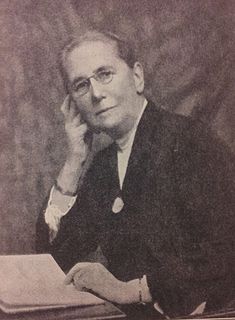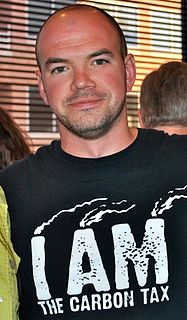A Quote by Hypatia Bradlaugh Bonner
It was not Christianity which freed the slave: Christianity accepted slavery; Christian ministers defended it; Christian merchants trafficked in human flesh and blood, and drew their profits from the unspeakable horrors of the middle passage. Christian slaveholders treated their slaves as they did the cattle in their fields: they worked them, scourged them, mated them , parted them, and sold them at will. Abolition came with the decline in religious belief, and largely through the efforts of those who were denounced as heretics.
Quote Topics
Abolition
Accepted
Belief
Blood
Came
Cattle
Christian
Christianity
Decline
Defended
Did
Drew
Efforts
Fields
Flesh
Flesh And Blood
Freed
Horrors
Human
Largely
Merchants
Middle
Middle Passage
Ministers
Parted
Passage
Profits
Religious
Religious Belief
Slave
Slaveholders
Slavery
Sold
Them
Those
Through
Treated
Unspeakable
Were
Which
Will
Worked
Related Quotes
Although it has been fashionable to deny it, anti-slavery doctrines began to appear in Christian theology soon after the decline of Rome and were accompanied by the eventual disappearance of slavery in all but the fringes of Christian Europe. When Europeans subsequently instituted slavery in the New World, they did so over strenuous papal opposition, a fact that was conveniently 'lost' from history until recently. Finally, the abolition of New World slavery was initiated and achieved by Christian activists.
My spiritual path has largely been Christianity - a label that I embraced and then rejected and have partially embraced again, as my understanding of Christianity has changed over time. When I accepted the mainstream, dogmatic definition of Christianity there came a point when I had to say, "Well, if that's what a Christian is, I'm not one."
There is no ground whatever for the claim, so often made by religious apologists, that these ideals are specifically Christian and originated with Jesus. What were specifically Christian were some of the less enlightened teachings, which have done untold harm. Christians claim that organised Christianity has been a great force for good, but this view can be maintained on one assumption only: that everything good in the Christian era is a result of Christianity and everything bad happened in spite of it.
The simple truth is that there isn't a single civil right I would deny to an evangelical Christian. I've defended their freedom of religion, of association, of disassociation, and believe they should be treated with respect. I wouldn't dream of drumming them out of the military, firing them for their faith, tearing up their relationships, or taking their children away from them. The favor, alas, is not returned.
Why did the consensus of Christian churches not only accept these astonishing views but establish them as the only true form of Christian doctrine? . . . these religious debates - questions of the nature of God, or of Christ - simultaneously bear social and political implications that are crucial to the development of Christianity as an institutional religion. In simplest terms, ideas which bear implications contrary to that development come to be labeled as 'heresy'; ideas which implicitly support it become 'orthodox.'
Liberal Christianity, of course, has enemies, but they are everyone's enemies - sexism, racism, homophobia. But liberal versions of Christianity, which can be both theologically and politically conservative, assume that what it means to be Christian qua Christian is to have no enemies peculiar to being Christian.
That the religious right completely took over the word Christian is a given. At one time, phrases such as Christian charity and Christian tolerance were used to denote kindness and compassion. To perform a "Christian" act meant an act of giving, of acceptance, of toleration. Now, Christian is invariably linked to right-wing conservative political thought -- Christian nation, Christian morality, Christian values, Christian family.
Such true worship will stand the test of Christ's great principle, “By their fruits you shall know them”. It sanctifies the Christian's life, and makes them walk with God, lifting them above fear and love of the world. It enables a Christian to show God to other folks. Such worship comes from heaven, and has the mark of God upon it.
In the Christian world, as you remember, Christianity is in the 21st century, Islam is in the 15th century. I don't mean to say that Islam is backward; I mean to say that there are certain experiences that it hasn't gone through. Christianity had the great religious wars of the 17th century. Islam, fortunately for the Muslims, did not have that. Christianity worked out a system of toleration. Islam was always more tolerant of Christendom.
Christianity is most admirably adapted to the training of slaves, to the perpetuation of a slave society; in short, to the very conditions confronting us today. The rulers of the earth have realized long ago what potent poison inheres in the Christian religion. That is the reason they foster it; that is why they leave nothing undone to instill it into the blood of the people. They know only too well that the subtleness of the Christian teachings is a more powerful protection against rebellion and discontent than the club or the gun.

































